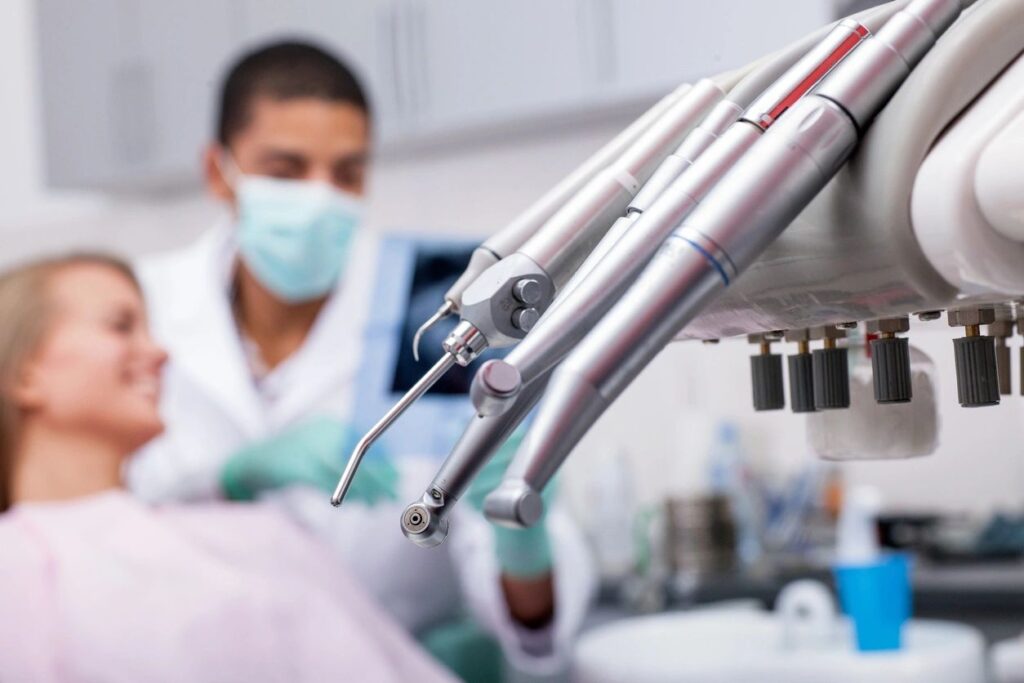POST
Dental Emergency Treatment – Myths and Facts
Most people do not consider dental problems as an emergency. Dental pain can be managed with over-the-counter medicines and treated by the dentist on the appointment day- but, NOT always.
While some dental problems can be dealt with patience; many others requires urgent dental care.
The question is how would you know the difference between urgent and non-urgent dental care?
Always remember … When it is weekend or a holiday and all the dental offices are closed in your area, you should always have a place (ideally dental office) that you can call to help you with your dental emergency need.
EMERGENCY DENTAL PROBLEMS – THINGS YOU SHOULD KNOW
It is crucial to differentiate the urgent problems from the non-urgent ones. You should not wait for your dentist’s appointment if you have an active infection in your mouth or your tooth got knocked out. Similarly, the mild dental pain or minor, non-symptomatic cracked tooth may wait for a few days and you do not have to rush to the emergency room immediately.
Many advance Dental office like ours offer virtual consultancy option. If you are in a situation where it is difficult to understand if it is an emergency or not, you can upload the photo or a small video of your “dental condition” on our website portal. Our 24/7 responsive team will instantly review the data and will contact you to provide you the proper guides to walk you through your emergency situation
Here is a list of emergency dental problems that you need to know:
- Unexplainable and unbearable dental pain (toothache)
Dental pain is a red flag telling you that something is wrong in your mouth. Mild toothaches can be ignored for a while, whereas a sudden, shooting, severe toothache can make you cry your eyes out. This is when you know you need emergency dental care.
- Swollen mouth or jaw
You need to seek urgent dental care if you notice a sudden swollen area around your mouth or jaw- that can be often followed by severe pain, pus, and fever. It may indicate an underlying infection or other serious conditions.
- Cracked, chipped or fractured tooth with severe pain
If you feel severe pain on biting, or a sharp shooting pain with a part of your tooth moving slightly you need to see an emergency dentist right away.
- Missing or dislodged filling
Oftentimes the filling can come out while eating or biting on something hard. It can expose the internal structure of the tooth or can be a cause of severe dental pain and sensitivity for which you need to head to the emergency room.
- Broken or failed dental crown:
Dental crown can break or come out as it is, especially if you got it years ago. This can cause severe pain, sensitivity and even make the remaining tooth structure prone to fracture. If you experience any symptoms, rush to your emergency dentist.
- Severe gum bleeding or swelling:
Gums can bleed while brushing or eating hard food but does not require emergency dental treatment. However if they swell abnormally or the bleeding would not stop, rush to the emergency dentist right away.
- Knocked out tooth:
Accidents can cause the tooth to fall off or knock out. Make your way to the dental emergency room and take your tooth along!

QUICK DENTAL EMERGENCY TREATMENTS:
It can take some time before you reach the emergency dental clinic. In the meantime, there are a few things that you can do to manage your dental problems:
- If you have facial or oral swelling or any soft tissue injury that can be painful and associated with fever. It can be due to an underlying infection. Take some OTC painkillers to manage the pain and put a cold compress on the swelling until you reach a dental office.
- For a cracked or broken tooth or severe dental pain rinse your mouth with lukewarm salt water and apply a cold compress to the affected area. It also helps with swelling.
- For a knocked-out tooth, handle with care. Treat the bleeding with a wet and cold compress. Pick the fallen off tooth from the crown area and try to reinserting it into the socket. If not possible, place it between your cheek and gum or put it in a small container filled with milk to preserve it until you reach the dental emergency room.

WHAT WILL HAPPEN DURING EMERGENCY VISIT?
- The dentist evaluate the condition and work on alleviating the dental pain, dealing with any infection first.
- Depending on the source of the infection, condition associated with severe dental pain and infection might need immediate emergency intervention like sedative restoration, root canal treatment, and possible tooth extraction – whichever the emergency dentist decides after diagnosing you.
- Treatment for bleeding and painful gums also depends on the advancement of the gum disease.
- If there is any soft tissue injury ( like injury to the lips or tongue) from an accident or a fall, the dental professional might need to stitch the wound.
- If the infection is severe with high-grade fever and poss. Life threatening condition, the dentist may transfer you to the hospital.
At the evening or holiday hours, it would be a blessing to find an open dental clinic. This is why you need to have access to a 24/7 available emergency dental office in your neighborhood. Luckily our dental practice is in the 5% of the fortunate dental offices that provide a true 24/7 access for dental treatments.
Whether it’s through phone call or virtual consult, our team is committed to will find the best possible dental emergency solutions for you!
- Questions? Contact us
- Learn more about our services
The content on this blog is not intended to be a substitute for professional medical and dental advice, diagnosis, or treatment. Always seek the advice of qualified health providers with questions you may have regarding medical and dental advice/conditions.
